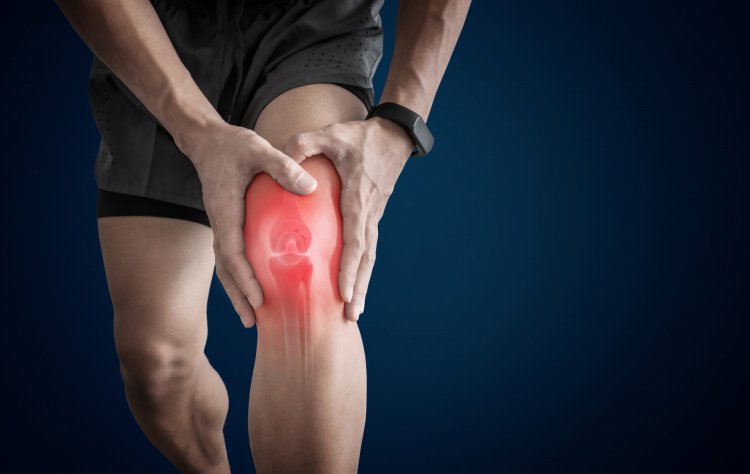Journey Through Joint Health: Navigating the Challenges of Rheumatism
What is Rheumatism? Rheumatism is a historical term used to describe various painful conditions affecting the joints, muscles, ligaments, tendons, and bones. Nowadays, it broadly refers to both inflammatory and non-inflammatory disorders of the musculoskeletal system. Conditions under this umbrella range from degenerative diseases like osteoarthritis to autoimmune disorders such as rheumatoid arthritis and systemic lupus erythematosus (SLE).

What is Inflammatory Rheumatism?
Inflammatory rheumatism refers to conditions marked by inflammation in the joints and surrounding tissues. This inflammation is typically driven by an abnormal immune response where the immune system mistakenly attacks the body's own tissues, causing chronic joint pain, swelling, and stiffness.
Symptoms of Inflammatory Rheumatism
Common symptoms include:
- Joint Pain: Persistent pain in multiple joints, often worse in the morning or after periods of inactivity.
- Swelling: Visible swelling and warmth around affected joints due to inflammation.
- Stiffness: Morning stiffness lasting more than 30 minutes, which improves with movement.
- Fatigue: Persistent and overwhelming tiredness.
- Reduced Range of Motion: Difficulty moving joints fully due to pain and stiffness.
- Systemic Symptoms: Symptoms may affect other organs, causing fever, weight loss, and organ-specific symptoms depending on the condition (e.g., skin rashes in lupus).
Causes of Inflammatory Rheumatism
The causes are multifactorial:
- Genetic Predisposition: Certain genes may increase the risk of developing autoimmune diseases like rheumatoid arthritis or ankylosing spondylitis.
- Environmental Factors: Infections, smoking, and certain occupational exposures may trigger or exacerbate inflammatory rheumatic diseases.
- Immune Dysregulation: Dysfunction in the immune system leads to an attack on the body's own tissues, particularly the joints.
What is Joint Rheumatism?
Joint rheumatism is a broad term for conditions affecting the joints, whether inflammatory or non-inflammatory. It includes disorders like osteoarthritis (degenerative joint disease), crystal-induced arthropathies (e.g., gout), infectious arthritis, and autoimmune diseases such as rheumatoid arthritis and psoriatic arthritis.
Symptoms of Joint Rheumatism
Symptoms vary depending on the specific condition but commonly include:
- Joint Pain: Persistent pain, typically worsened by movement or weight-bearing.
- Swelling: Visible swelling around the affected joint.
- Stiffness: Difficulty moving the joint, particularly in the morning or after prolonged inactivity.
- Warmth and Redness: Inflammation can cause the joint to feel warm to the touch and appear red.
- Joint Deformity: Over time, joint damage may lead to deformities, such as crooked fingers in rheumatoid arthritis.
Causes of Joint Rheumatism
The causes can be categorized as:
- Degenerative Changes: Wear and tear on joints over time, leading to conditions like osteoarthritis.
- Autoimmune Factors: Immune system attacks joint tissues (e.g., rheumatoid arthritis) or systemic autoimmune diseases affecting joints (e.g., lupus).
- Metabolic Disorders: Crystal deposition diseases like gout, where uric acid crystals accumulate in joints.
- Infectious Agents: Bacterial, viral, or fungal infections can lead to infectious arthritis.
Types of Joint Rheumatism
Major types include:
- Osteoarthritis: Degenerative joint disease due to wear and tear on joints.
- Rheumatoid Arthritis: Chronic autoimmune disorder causing joint inflammation and damage.
- Psoriatic Arthritis: Associated with psoriasis, causing joint inflammation and skin lesions.
- Ankylosing Spondylitis: Inflammatory arthritis primarily affecting the spine and sacroiliac joints.
- Gout: Crystal-induced arthritis caused by the deposition of uric acid crystals in joints.
- Systemic Lupus Erythematosus (SLE): Systemic autoimmune disease affecting multiple organs, including joints.
Diagnosis of Rheumatism Diseases
Diagnosis involves a thorough evaluation including:
- Medical History: Symptoms, duration, family history of autoimmune diseases.
- Physical Examination: Assessing joint swelling, warmth, tenderness, and range of motion.
- Laboratory Tests: Blood tests for inflammatory markers (e.g., ESR, CRP), autoimmune antibodies (e.g., RF, anti-CCP), and specific markers for certain conditions (e.g., uric acid levels in gout).
- Imaging Studies: X-rays, MRI, or ultrasound to assess joint damage, inflammation, or presence of crystals.
Rheumatism Tests
Common tests include:
- Erythrocyte Sedimentation Rate (ESR) and C-Reactive Protein (CRP): Elevated in the presence of inflammation.
- Rheumatoid Factor (RF) and Anti-Cyclic Citrullinated Peptide (anti-CCP) Antibodies: Markers for rheumatoid arthritis.
- Joint Fluid Analysis: Examination of synovial fluid for crystals, infection, or signs of inflammation.
Treatment of Inflammatory Rheumatism
Treatment aims to relieve symptoms, prevent joint damage, and improve quality of life:
- Medications: Nonsteroidal anti-inflammatory drugs (NSAIDs), disease-modifying antirheumatic drugs (DMARDs), biologic therapies (TNF inhibitors, IL-6 inhibitors).
- Physical Therapy: Exercises to improve joint mobility, strength, and flexibility.
- Occupational Therapy: Techniques to protect joints and adapt activities.
- Surgery: Joint replacement or repair in severe cases of joint damage.
In summary, rheumatism encompasses a wide spectrum of musculoskeletal disorders, with inflammatory forms characterized by autoimmune-driven joint inflammation and damage. Early diagnosis and comprehensive management involving medications, physical therapy, and lifestyle modifications are crucial in managing these chronic conditions effectively and improving long-term outcomes for patients.
Disclaimer:
The information provided in this article is for educational purposes only and should not be considered medical advice. If you have any health concerns or are experiencing symptoms, it is important to consult with a healthcare professional, such as a doctor or clinic, for proper diagnosis and treatment. Always seek the advice of your doctor or other qualified health provider with any questions you may have regarding a medical condition. Do not disregard professional medical advice or delay in seeking it because of something you have read in this article.
What's Your Reaction?





















